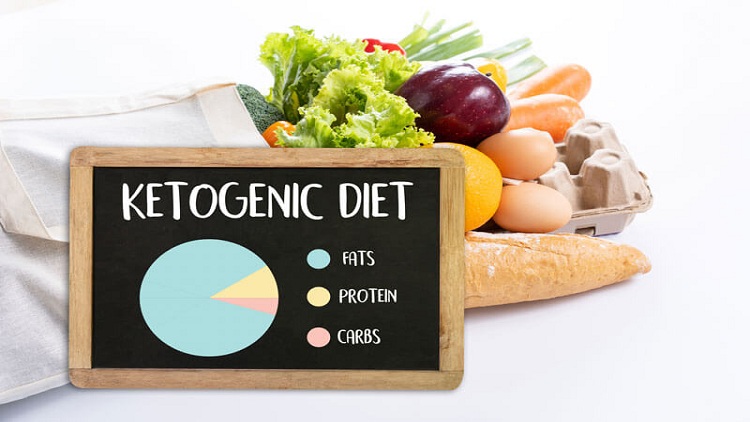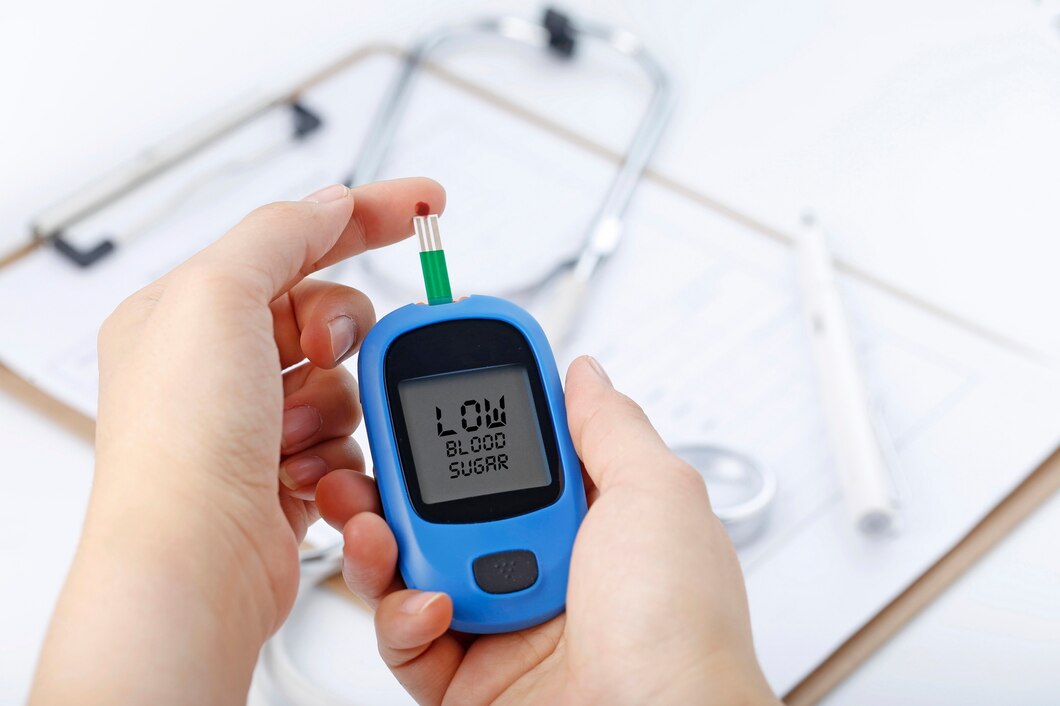
Ketogenic Diet For Type 2 Diabetes
Type 2 diabetes is a disease that affects blood sugar regulation. A balanced diet and keeping a healthy body weight are two ways to control the disease. A ketogenic diet is a high-fat, moderate-protein, extremely low-carbohydrate diet that may assist with blood sugar support for certain people.
Dietary requirements vary from individual to person. Doctors now customise a diet plans for patients based on their existing eating habits, preferences, and a goal weight or blood sugar level.
A rise in blood glucose can occur when a person has a high-carb meal, especially if they have diabetes. Both type 1 and type 2 diabetes require a healthy diet.
What’s Keto!
Weight loss is a common goal of type 2 diabetes diets, so it may seem strange that a high-fat diet is an option. The ketogenic (keto) diet, which is high in fat and low in carbohydrates, has the potential to alter how your body stores and utilises energy, thereby alleviating diabetic symptoms.
Your body turns fat into energy instead of sugar when you follow the keto diet. The diet was developed in the 1920s as a therapy for epilepsy, but its effects on type 2 diabetes are currently being investigated.
The ketogenic diet has been shown to enhance blood glucose (sugar) levels while also lowering insulin requirements. The diet, however, is not without its drawbacks. Before embarking on a severe diet, consult your doctor.
Relation Between Keto Diet & Diabetes!
Carbohydrates are strictly limited on the ketogenic diet. It makes the body break down fats in order to get energy. Ketosis is the metabolic process of burning fat for energy. It generates ketones, which are a kind of fuel.
Effects On Blood Sugar
Blood glucose levels can be reduced by following a ketogenic diet. People with type 2 diabetes are typically advised to limit their carbohydrate consumption since carbohydrates convert to sugar and, in high amounts, can cause blood sugar rises.
Carbohydrate counts, on the other hand, should be calculated on an individual basis with the assistance of your doctor.
Eating too many carbohydrates might be harmful if you already have high blood glucose. Some people report lower blood sugar when they shift their attention to fat.
Effects On Medication
Ketogenic diets have been shown to help lower blood sugar levels. As a result, some type 2 diabetics who also follow a ketogenic diet may be able to minimise their prescription usage.
However, experts have warned that people who combine a ketogenic diet with an insulin treatment may be at greater risk of experiencing hypoglycemia (low blood sugar).When blood sugar levels fall below 70 milligrammes per deciliter (mg/dL), hypoglycemia develops.
While taking medicine, it’s essential to talk to your doctor about any dietary modifications. When using diabetic medicines, not getting enough carbs might be hazardous.
Effects On Weight
The ketogenic diet promotes fat burning in the body. This is advantageous while attempting to reduce weight, and it may be useful for those whose excess weight has contributed to the development of prediabetes and type 2 diabetes.
In patients with diabetes, even light-to-moderate weight loss by diet and exercise may help with glycemic management, general well-being, and energy allocation throughout the day.
Benefits
Aside from weight loss, the ketogenic diet has a number of other advantages. Sources you may trust include:
- blood pressure should be reduced
- insulin sensitivity has improved
- improved high-density lipoprotein (HDL), or “good” cholesterol, without
- increasing low-density lipoprotein (LDL), or “bad” cholesterol
- a reduction in insulin
High Fat In Keto Diet!
Because many patients with type 2 diabetes are overweight, a high-fat diet may appear to be harmful.
The ketogenic diet aims to force the body to use fat for energy rather than carbs or glucose. The keto diet relies heavily on fat for energy, with carbs accounting for just a small portion of the diet.
However, just because you’re on a ketogenic diet doesn’t imply you should eat a lot of saturated fats. Fats that are good for your heart are essential for general wellness.
The following are some nutritious foods that are often consumed on the ketogenic diet:
- eggs
- salmon and other fish
- cottage cheese
- avocado
- olive oil & olives
- nut butters & nuts
- seeds
Bottom Line
Today You discovered how keto and diabetes are related, and if you’re interested in learning more about how stress and diabetes are linked, keep reading. We are a stevia manufacturer in India with years of expertise in offering the best natural sweetener to health and fitness enthusiasts. We are certain that our goods will assist you in the same way that our article has.
More Blogs
Stevia Powder vs. Liquid
Stevia Powder Benefits
Stevia Powder Uses
















